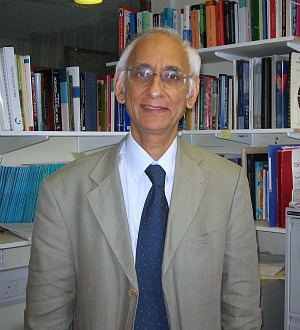How do you describe your job when you meet people at a party?
I tell them I work on monitoring systems for continuous patients who have diabetes or are critically ill. These are biocompatible biosensors for reliable metabolite monitoring (i.e. glucose, lactate). They’re like a chemical thermometer. Biosensors come in a variety of shapes. Take for an example, Boots’ glucose meter strips. Half of these are biosensors. We work on structures a bit like that. We also work on structures that look like an injection needle, with the tip comprised of biological molecules and membranes. We make currents and measure stress indicators like glucose and lactic acid. I’m involved in a major programme starting for elite athletes where we look at their performance. It’s a partnership between Imperial, Queen Mary, Loughborough University, and UK Sport
What is ‘cutting-edge’ about your work?
Probably the aspect of merging material sciences with biology and making the devices biocompatible so that they can survive the attacks from body fluids when you operate
What are the biggest implications your work will/could have in the future?
To provide a continuous read-out of rapid biochemical changes in people who are unstable with regard to their internal chemistry
Describe some of the highlights of your average day.
Making a small step forward with a new idea or providing advice on strategy to do with science or research policy
Describe briefly how your career has progressed to date.
I qualified in medicine and went into pathology, a branch relating to chemistry, but was uncomfortable with service work. An opportunity came up to do a pure science degree in chemistry after my medical degree, which I did while working at the same time. I’ve been sort of a “double agent” all my life. I did a PhD with a leader in diabetes on bio-sensors (purely coincidental because he was leading my department). After my PhD I worked in close collaboration with what was then Imperial Chemical Industries (ICI) who had a big interest in biosensors. Their funding allowed me to be a researcher. Sometime after that I became a fulltime academic at the University of Manchester as a Professor of Clinical Biochemistry. I ran a hospital department and did research, and then received an invitation to come to London. I’ve now been at Queen Mary for ten years
How is your job cross-disciplinary?
My job is probably the most extreme example of cross-disciplinary you might encounter. My service work deals entirely with biochemistry (medical and chemical analysis). My research is entirely devoted to problems of better biomaterials for sensors. So one area of my work is material science and the other is chemistry. I have a medical degree but I’m in a science and engineering department which is very unusual
How do you see your field developing over the next 5-10 years?
I think the input of better micro-technology – usable nanotechnology – will allow us to make more devices and better materials science will improve design work inside the body
What’s the most unexpected thing about your job?
The fact that, coming from a non materials background, anybody thinks that I have useful comments to make about biomaterials
What’s the biggest achievement of your career so far?
Probably to have developed devices that survive better in body tissues and fluids

